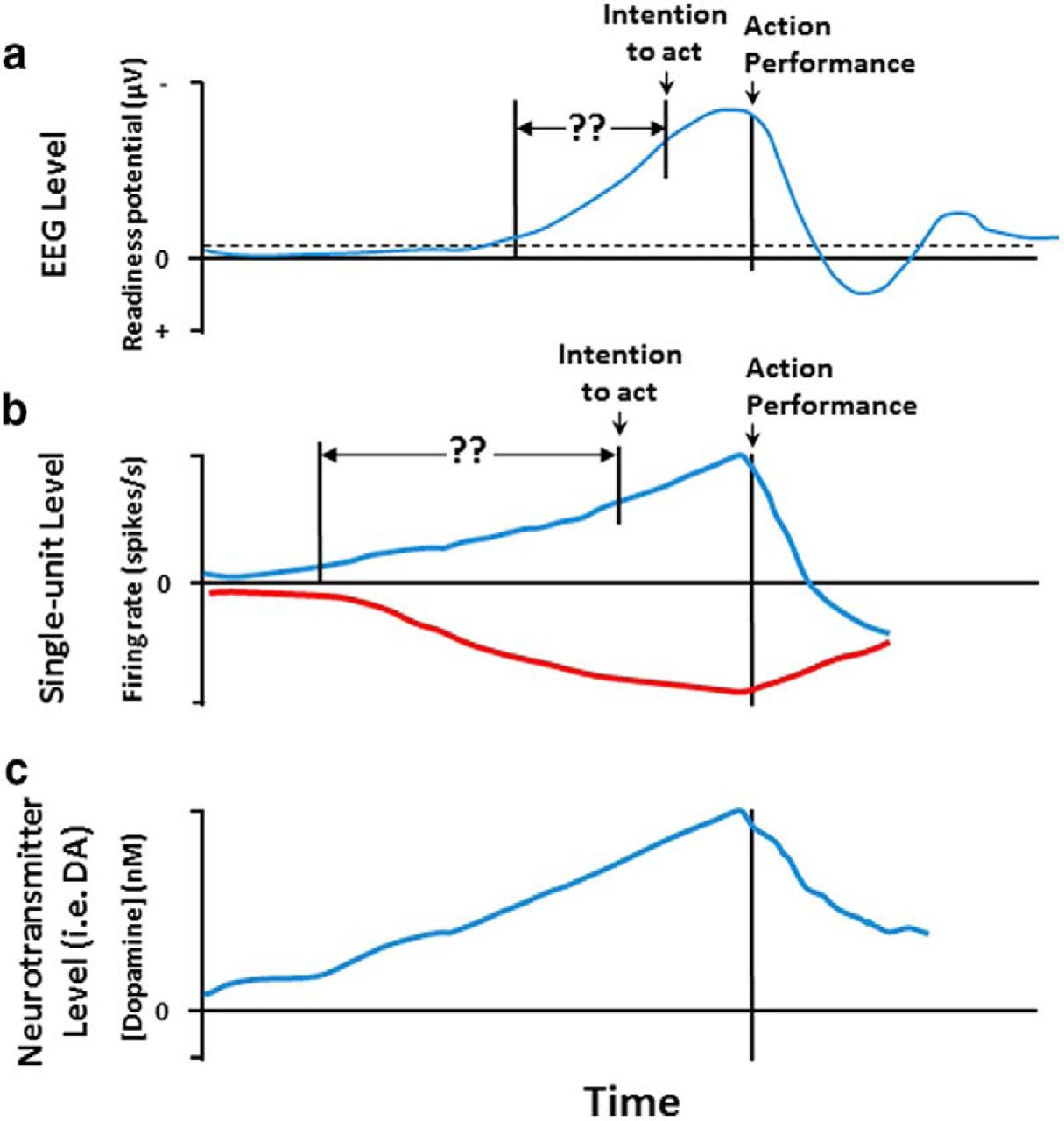|
Volition (psychology)
Volition, also known as will or conation, is the cognitive process by which an individual decides on and commits to a particular course of action. It is defined as purposive striving and is one of the primary human psychological functions. Others include affect (feeling or emotion), motivation (goals and expectations), and cognition (thinking). Volitional processes can be applied consciously or they can be automatized as habits over time. Most modern conceptions of volition address it as a process of conscious action control which becomes automatized (e.g. see Heckhausen and Kuhl; Gollwitzer; Boekaerts and Corno). Overview Many researchers treat ''volition'' and '' willpower'' as scientific and colloquial terms (respectively) for the same process. When a person ''makes up their mind'' to do a thing, that state is termed 'immanent volition'. When we put forth any particular act of choice, that act is called an emanant, executive, or imperative volition. When an immanent or sett ... [...More Info...] [...Related Items...] OR: [Wikipedia] [Google] [Baidu] |
Cognitive Process
Cognition is the "mental action or process of acquiring knowledge and understanding through thought, experience, and the senses". It encompasses all aspects of intellectual functions and processes such as: perception, attention, thought, imagination, intelligence, the formation of knowledge, memory and working memory, Value judgment, judgment and evaluation, reasoning and computation, problem solving, problem-solving and decision making, decision-making, comprehension (logic), comprehension and production of language. Cognitive processes use existing knowledge to discover new knowledge. Cognitive processes are analyzed from very different perspectives within different contexts, notably in the fields of linguistics, musicology, anesthesia, neuroscience, psychiatry, psychology, education, philosophy, anthropology, biology, systemics, logic, and computer science. These and other approaches to the analysis of cognition (such as embodied cognition) are synthesized in the developin ... [...More Info...] [...Related Items...] OR: [Wikipedia] [Google] [Baidu] |
Avolition
Avolition or amotivation, as a symptom of various forms of psychopathology, is the decrease in the ability to initiate and persist in self-directed purposeful activities. Such activities that appear to be neglected usually include routine activities, including hobbies, going to work or school, and most notably, engaging in social activities. A person experiencing avolition may stay at home for long periods of time, rather than seeking out work or peer relations. It is a disorder of diminished motivation. Psychopathology People with avolition often want to complete certain tasks but lack the ability to initiate behaviors necessary to complete them. Avolition is most commonly seen as a symptom of some other disorder, but might be considered a primary clinical disturbance of itself (or as a coexisting second disorder) related to disorders of diminished motivation. In 2006, avolition was identified as a negative symptom of schizophrenia by the National Institute of Mental Health (NI ... [...More Info...] [...Related Items...] OR: [Wikipedia] [Google] [Baidu] |
Routledge
Routledge ( ) is a British multinational corporation, multinational publisher. It was founded in 1836 by George Routledge, and specialises in providing academic books, academic journals, journals and online resources in the fields of the humanities, behavioral science, behavioural science, education, law, and social science. The company publishes approximately 1,800 journals and 5,000 new books each year and their backlist encompasses over 140,000 titles. Routledge is claimed to be the largest global academic publisher within humanities and social sciences. In 1998, Routledge became a subdivision and Imprint (trade name), imprint of its former rival, Taylor & Francis, Taylor & Francis Group (T&F), as a result of a £90-million acquisition deal from Cinven, a venture capital group which had purchased it two years previously for £25 million. Following the merger of Informa and T&F in 2004, Routledge became a publishing unit and major imprint within the Informa "academic publishing ... [...More Info...] [...Related Items...] OR: [Wikipedia] [Google] [Baidu] |
Mahwah, New Jersey
Mahwah is the northernmost and largest municipality by geographic area () in Bergen County, New Jersey, Bergen County, in the U.S. state of New Jersey. As of the 2020 United States census, the township's population was 25,487, a decrease of 403 (−1.6%) from the 2010 United States census, 2010 census count of 25,890, which in turn reflected an increase of 1,828 (+7.6%) from the 24,062 counted in the 2000 United States census, 2000 census. The name "Mahwah" is derived from the Delaware languages, Lenape language word "''mawewi''" which means "Meeting Place" or "Place Where Paths Meet". The area that is now Mahwah was originally formed as Hohokus Township on April 9, 1849, from portions of the former Franklin Township, Bergen County, New Jersey, Franklin Township (now Wyckoff, New Jersey, Wyckoff). While known as Hohokus Township, territory was taken to form Orvil Township, New Jersey, Orvil Township (on January 1, 1886; remainder of township is now Waldwick, New Jersey, Waldwick ... [...More Info...] [...Related Items...] OR: [Wikipedia] [Google] [Baidu] |
Taylor & Francis
Taylor & Francis Group is an international company originating in the United Kingdom that publishes books and academic journals. Its parts include Taylor & Francis, CRC Press, Routledge, F1000 (publisher), F1000 Research and Dovepress. It is a division of Informa, a United Kingdom-based publisher and conference company. Overview Founding The company was founded in 1852 when William Francis (chemist), William Francis joined Richard Taylor (editor), Richard Taylor in his publishing business. Taylor had founded his company in 1798. Their subjects covered agriculture, chemistry, education, engineering, geography, law, mathematics, medicine, and social sciences. Publications included the ''Philosophical Magazine''. Francis's son, Richard Taunton Francis (1883–1930), was sole partner in the firm from 1917 to 1930. Acquisitions and mergers In 1965, Taylor & Francis launched Wykeham Publications and began book publishing. T&F acquired Hemisphere Publishing in 1988, and the compa ... [...More Info...] [...Related Items...] OR: [Wikipedia] [Google] [Baidu] |
Prohairesis
Prohairesis or proairesis (; variously translated as "moral character", "will", "volition", "choice", "intention", or "moral choice") is a fundamental concept in the Stoic philosophy of Epictetus. It represents the choice involved in giving or withholding assent to impressions ''( phantasiai)''. The use of this Greek word was first introduced into philosophy by Aristotle in the ''Nicomachean Ethics''. To Epictetus, it is the faculty that distinguishes human beings from all other creatures. The concept of prohairesis plays a cardinal role in the '' Discourses'' and in the '' Manual'': the terms "prohairesis", "prohairetic", and "aprohairetic" appear some 168 times. Explanation by Epictetus According to Epictetus, nothing is properly considered either good, or bad, aside from those things that are within our own power to control, and the only thing fully in our power to control is our own volition (prohairesis) which exercises the faculty of choice that we use to judge our impressi ... [...More Info...] [...Related Items...] OR: [Wikipedia] [Google] [Baidu] |
Self-agency
Self-agency, also known as the phenomenal will, is the sense that actions are self-generated. Scientist Benjamin Libet was the first to study it, concluding that brain activity predicts the action before one even has conscious awareness of his or her intention to act upon that action (see Neuroscience of free will). Daniel Wegner later defined the three criteria of self-agency: priority, exclusivity, and consistency. According to Wegner, priority means that an action must be planned before the action is initiated. The interval between the action and the effect is known as the intentional binding. Another criterion for self-agency is exclusivity, which means the effect is due to the person's action and not because of other potential causes for the effect. The last criterion Wegner suggested was consistency. Consistency means that one's planned action must occur as planned. Internal motor cues are also an indicator in deciding whether an action occurred through self-agency, and ... [...More Info...] [...Related Items...] OR: [Wikipedia] [Google] [Baidu] |
Neuroscience Of Free Will
The neuroscience of free will, a part of neurophilosophy, is the study of topics related to free will (including Volition (psychology), volition and the sense of agency), using neuroscience and the analysis of how findings from such studies may impact the free will debate. As medical and scientific technology has advanced, neuroscientists have become able to study the human brain, brains of living humans, allowing them to observe the brain's decision-making processes and revealing insights into human Agency (philosophy), agency, moral responsibility, and consciousness. One of the pioneering studies in this field was conducted by Benjamin Libet and his colleagues in 1983 and has been the foundation of many studies in the years since. Other studies have attempted to predict the actions of participants before they happen, explore how we know we are responsible for voluntary movements as opposed to being moved by an external force, or how the role of consciousness in decision-making ... [...More Info...] [...Related Items...] OR: [Wikipedia] [Google] [Baidu] |
Motivational Salience
Motivational salience is a cognitive process and a form of attention that ''motivates'' or propels an individual's behavior towards or away from a particular object, perceived event or outcome. Motivational salience regulates the intensity of behaviors that facilitate the attainment of a particular goal, the amount of time and energy that an individual is willing to expend to attain a particular goal, and the amount of risk that an individual is willing to accept while working to attain a particular goal. Motivational salience is composed of two component processes that are defined by their attractive or aversive effects on an individual's behavior relative to a particular stimulus: ''incentive salience'' and ''aversive salience''. Incentive salience is the attractive form of motivational salience that causes approach behavior, and is associated with operant reinforcement, desirable outcomes, and pleasurable stimuli. Aversive salience (sometimes known as fearful salience) is ... [...More Info...] [...Related Items...] OR: [Wikipedia] [Google] [Baidu] |
Free Will
Free will is generally understood as the capacity or ability of people to (a) choice, choose between different possible courses of Action (philosophy), action, (b) exercise control over their actions in a way that is necessary for moral responsibility, or (c) be the ultimate source or originator of their actions. There are different theories as to its nature, and these aspects are often emphasized differently depending on philosophical tradition, with debates focusing on whether and how such freedom can coexist with determinism, divine foreknowledge, and other constraints. Free will is closely linked to the concepts of moral responsibility, praise, culpability, and other judgements which apply only to actions that are freely chosen. It is also connected with the concepts of Advice (opinion), advice, persuasion, deliberation, and Prohibitionism, prohibition. Traditionally, only actions that are freely Will (philosophy), willed are seen as deserving credit or blame. Whether free ... [...More Info...] [...Related Items...] OR: [Wikipedia] [Google] [Baidu] |





